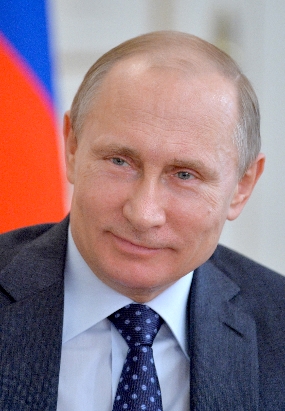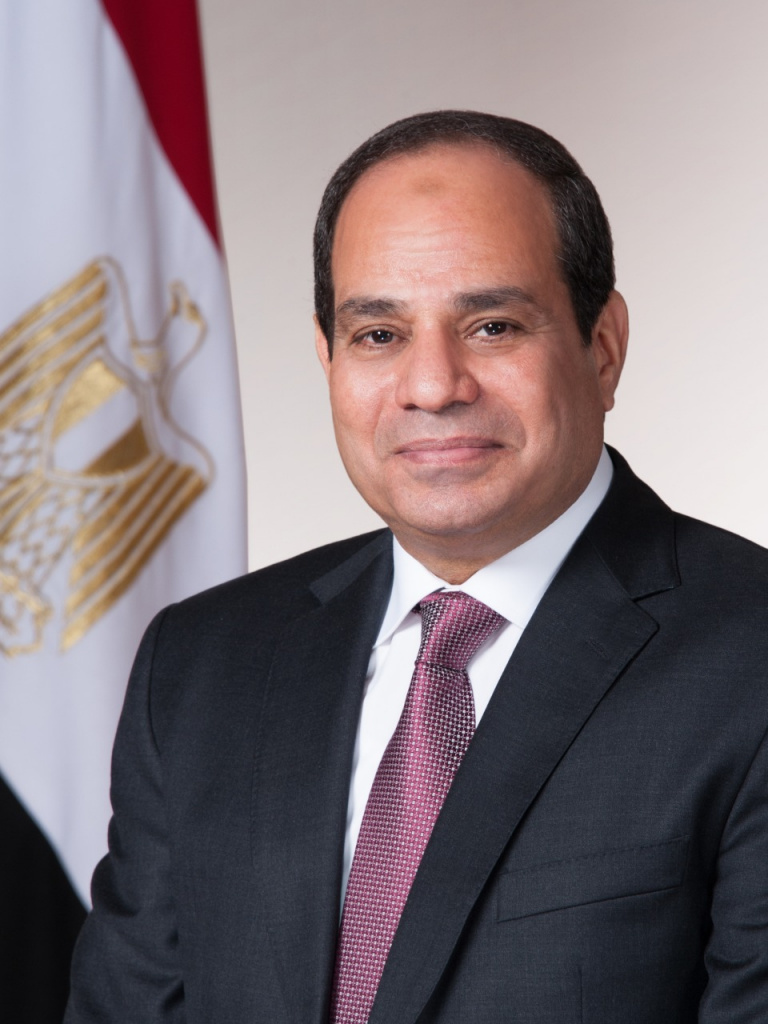Meeting with President of Uganda Yoweri Kaguta Museveni
Vladimir Putin met with President of the Republic of Uganda Yoweri Kaguta Museveni at the Expoforum venue.
President of Russia Vladimir Putin: Mr President, I am delighted to meet with you again. Last time we met in Sochi during the first Russia–Africa Summit. I am grateful to you for bringing the Ugandan delegation to St Petersburg today and for taking part in our second summit.
I said many times that holding this forum is very important for us. The comprehensive development of relations with African countries in politics, in security, and in the trade, economic and humanitarian spheres is an invariable priority of Russian foreign policy. And Uganda, of course, is among Russia's key partners on the African continent.
Our countries have a long history of friendship and mutually beneficial cooperation. Last year, we marked 60 years of our diplomatic relations. Our countries have established and are maintaining a political dialogue and ties between parliaments and parties.
We also see positive changes in trade. Despite a minor decline in 2022, mutual trade increased more than fivefold in January to April 2023 year on year. It is a positive trend.
We maintain close cooperation on the humanitarian track. In February this year, you hosted a delegation of the Federal Service for the Oversight of Consumer Protection and Welfare (Rospotrebnadzor) led by its head, Anna Popova, who has joined us here today. As per the agreements reached on expanding our sanitary and epidemiological cooperation, here at the summit, we will deliver to Uganda a cutting-edge mobile laboratory on the platform of the KAMAZ truck, which can conduct up to 3,500 tests a day for any infections, including the most dangerous ones.
In November 2022, a Russian culture festival was held in Uganda. We are grateful to you for supporting that event. There are plans to open a Russian spiritual and education centre in Kampala. We continue to train personnel for Uganda; about 4,000 Ugandan citizens have received education in our country. We have more than doubled the quota for Ugandan students for the 2023/2024 academic year. Under a programme underway in the Republic of Tatarstan, 218 scholarships have also been approved for the Ugandans who are undergoing vocational technical training.
Russia and Uganda stand together on the international stage. This stance is based on their commitment to the policy of creating a fair multipolar world, and we attach great importance to the further coordination of our efforts in this sphere, especially since you will chair of the Non-Aligned Movement next year.
Mr President, I am delighted to welcome you and your delegation to St Petersburg. Thank you.
President of the Republic of Uganda Yoweri Kaguta Museveni: Your Excellency,
I thank you very much on behalf of our delegation for meeting us today but also for this forum. As I told you when we met before, and as I will be saying in some of my speeches, the relationship between the Soviet Union and Africa was crucial for the liberation of Africa. As I told you in South Africa, by 1900 the whole of the African continent had been colonised, except for Ethiopia. There were two big events which happened soon after that. One was the formation of the African National Congress in South Africa in 1912. That was the first time Africans started organising to liberate Africa. Then in 1917 the Communists took over power in Russia and they were the first international group to support us. Later on, they were joined by China in 1949. That formed a solid anti-colonial force. So, even when all these things were happening, the Soviet people were the first who stood with us when we were fighting against colonialism. Therefore, this is the starting point.
Now coming to modern times, we can cooperate in the economic development because there is big potential, and we have already started. Thank you very much for the laboratory. And I thank you for the scholarships. Even in the past we had many of our students studying here. But now, we propose new areas like, for instance, the area of refinery and the exploration for petroleum products as well as oil, which we can export as crude, but also refine it for the East African market. But Russian companies can also take part in exploration for more oil in our area. Then we have got the pipeline to the ocean for crude oil, in which we are involved with Total, the French company, and some Chinese companies, but Russian companies can also come in and invest in that East African crude pipeline because it can transport the oil of not only Uganda but even South Sudan and Congo, Congo-Kinshasa.
We have also agreed with the Russian groups on building a nuclear power station for generating electricity. And that is going on, and I am very happy with that. Then we have fertilisers, very big potential for phosphates, and for potassium, and also for ammonia. I would like to invite Russian companies, if they can, to take part in that. Now regarding fertilisers, we use 300,000 tonnes per year.
We have built electric vehicles in Uganda; we have already built them but we would like to work with Russia, if possible, on the issue of electric batteries. We have got lithium, the raw materials, the rare earth, but if you can work with us on the electric batteries, so that we do not waste money reporting those. We have the raw materials also for that, and Russia has got good experience in that area.
Space and space science. We have trained our people and are training more people, and we can train more people in Russia so that we build our own satellite because it would solve so many problems, with the environment and even security, to see the forests, which are being degraded, the national parks, also for looking for minerals, so we would be very happy if Russia was to work with us on the issue of the satellite.
Now, this is an idea which I want to put to your Excellency. You see, the problem of Africa since its independence – Africa had many problems in the last 600 years: we had slavery, then we had the colonialism, then after independence we have had neo-colonialism, and we have been struggling with that. But one facet of neo-colonialism and colonialism was Africa being confined to producing only raw materials, crops, like coffee, and minerals. I can give you an example: the global business for coffee is worth $460 billion. That is the value of the coffee business in the world. But of those $460 billion the coffee producing countries of the whole world share only $25 billion and Africa shares only $2.4 billion out of $460 billion. This issue is the biggest stunting factor why the African economies are stunted; they do not grow, because all the value is taken by other people. Germany earns more from coffee than the whole of Africa. Germany earns $6.85 billion from coffee, while Africa earns only $2.4 – 2.5 billion. This is the big scandal. So, what I want to propose to Russia and China is to discourage as a policy the importing of raw materials from Africa, to instead work with the Africans to add value at source. This would within a very short time transform the economies of Africa from low- and mid-income to high- and middle-high income because we see from the example of Uganda that everything is depressed now; production is high but we are still producing raw materials.
And what we want is, first of all, procurement: for somebody to buy processed end products, as a policy. Because if the European Union imports unprocessed coffee, it enters the European Union with zero tax, without a tax, but at some point, if you add value to coffee, you add a tax of 17%. So it is necessary to block the entry into Europe of processed coffee. To go from zero tax for raw materials to added value. If China and Russia were to follow this policy, in some of these countries the economy would grow within a very short time. It is bad economics on the side of Western countries. You see, for instance, if we were to export processed products to the USA or to Europe, and we earned more money, the purchasing power would go up, we would have more money, and we would buy more European products. It would be better for everybody. So that is what I want propose to you. If you can look at it, it would definitely be a game changer.
There are many investment opportunities in Uganda for Russian companies, like, for instance, in the medical industry: the vaccines, diagnostics, pharmaceuticals. We have our own groups working on those but it would be good to work with Russian companies.
These are the main points which I think we can look at. On the military side, we buy quite a bit of Russian equipment, and it has helped us a lot to stabilise the situation. That is why Uganda is an island of peace in that part of the world. I think we are now the biggest accommodator of refugees in the whole of Africa.
Source: kremlin.ru


